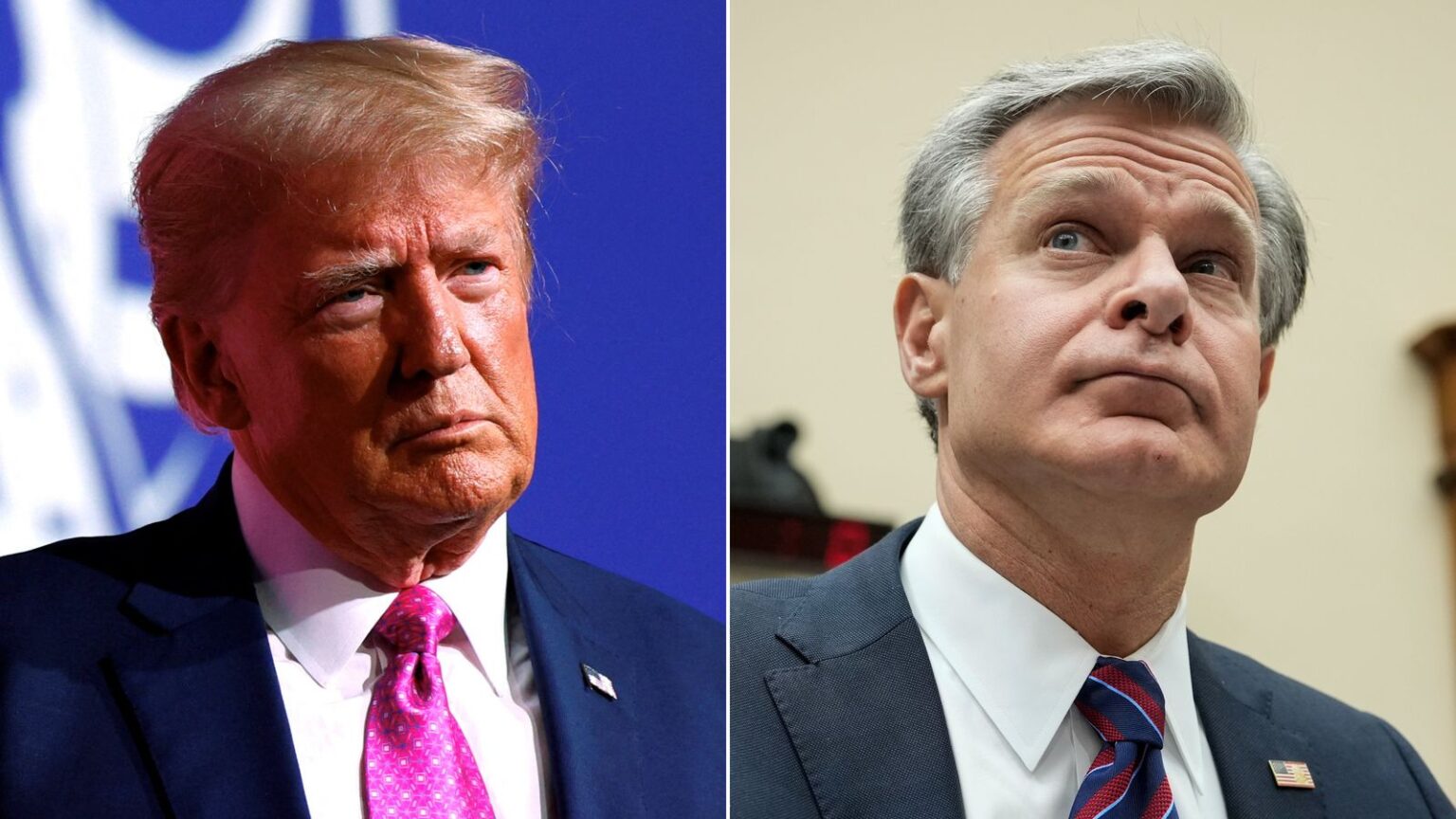FBI Director Christopher Wray is reportedly planning to resign before Inauguration Day, signaling a significant leadership change for one of the nation’s most scrutinized institutions. The decision, seen as a preemptive move, reflects mounting pressure from Republican lawmakers and highlights the agency’s strained relationship with conservative leaders, particularly those aligned with former President Donald Trump.
Wray’s tenure has been marked by controversy, and his anticipated departure coincides with Trump’s return to the White House. Sources suggest Wray aims to avoid a public dismissal, a possibility that seemed inevitable under a Trump administration.
Appointed by Trump in 2017, Wray’s leadership of the FBI has been anything but smooth. His tenure has faced persistent criticism from Republicans who accuse the bureau of political bias and mishandling high-profile investigations. The tension reached a peak with the FBI’s raid on Trump’s Mar-a-Lago residence, an event that became a rallying point for conservatives alleging partisanship in federal law enforcement.
Wray’s critics, including prominent Republicans like Senator Charles Grassley, have called for his resignation. Grassley, poised to chair the Judiciary Committee, sent a strongly worded letter earlier this week urging Wray and Deputy Director Paul Abbate to step down.
“It’s time for you and your deputy to move on to the next chapter in your lives,” Grassley wrote, citing grievances over alleged political bias, retaliation against whistleblowers, and mismanagement of high-stakes investigations.
Grassley specifically criticized the handling of the Mar-a-Lago raid, where armed agents executed a warrant that many conservatives viewed as excessive and politically motivated.
Deputy Director Paul Abbate, initially expected to remain in his role until 2025, is reportedly preparing to step aside alongside Wray. This accelerated timeline is likely a response to Grassley’s public “vote of no confidence” in FBI leadership.
In the interim, Abbate is expected to serve as acting director, but Trump has already announced his preference for Kash Patel to assume the role permanently. Patel, a trusted ally of Trump and former senior adviser at the National Security Council, is known for his loyalty to the former president and his critiques of the FBI’s current direction.
Patel’s nomination signals a significant shift in leadership philosophy for the bureau. His expected tenure is likely to focus on addressing Republican concerns about political bias and implementing structural reforms aimed at increasing accountability.
The FBI’s reputation has taken substantial hits in recent years. Accusations of political interference, overreach, and lack of transparency have fueled public distrust, particularly among conservatives. The Mar-a-Lago raid epitomized these criticisms, with many Republicans citing it as a glaring example of the bureau’s alleged politicization.
Despite these challenges, the FBI under Wray has defended its record, pointing to efforts to enhance internal accountability and cooperation with congressional oversight.
“Director Wray and Deputy Director Abbate have taken strong actions toward achieving accountability… and remain committed to sharing information about the evolving threat environment facing our nation,” the bureau said in a statement to The Washington Times.
However, for many critics, these measures fall short of repairing the bureau’s tarnished image. Republican leaders argue that new leadership is essential to restoring public trust and ensuring the FBI operates without political entanglements.
Wray’s resignation marks a pivotal moment for the FBI, with Trump poised to reshape the bureau according to his administration’s vision. Patel’s anticipated leadership represents a break from tradition, reflecting Trump’s campaign promise to overhaul federal institutions and eliminate perceived bureaucratic bias.
For Republicans, this transition is an opportunity to redefine the FBI’s role, focusing on increased accountability and depoliticized operations. Patel’s leadership is expected to prioritize these goals while addressing internal grievances that have plagued the bureau in recent years.
The road ahead for the FBI, however, remains fraught with challenges. Balancing the agency’s independence with calls for greater accountability will require careful navigation. Furthermore, the bureau must continue addressing external threats to national security, even as it undergoes internal restructuring.
Wray’s departure signals the end of a contentious chapter in FBI history, but it also opens the door to broader debates about the role of federal law enforcement in American democracy. For Republicans, it represents a chance to align the bureau more closely with their vision of justice and transparency.
As Patel prepares to take the helm, the FBI faces a defining moment in its mission to rebuild public trust while maintaining its effectiveness in safeguarding the nation. Wray’s resignation is not just the conclusion of his tenure—it is the beginning of a new era for one of America’s most powerful and controversial institutions.


Wray resigning would be a gift to America
Christopher Wray has been a disappointment and he will probably leave on his own rather than being thrown out by the new administration. Under his leadership the FBI has become weaponized against Americans and used by the radical woke democrats. The FBI was never intended to be used this way and hopefully the new administration will work hard to reconstruct it into a law-abiding law enforcement agency that people can trust again.